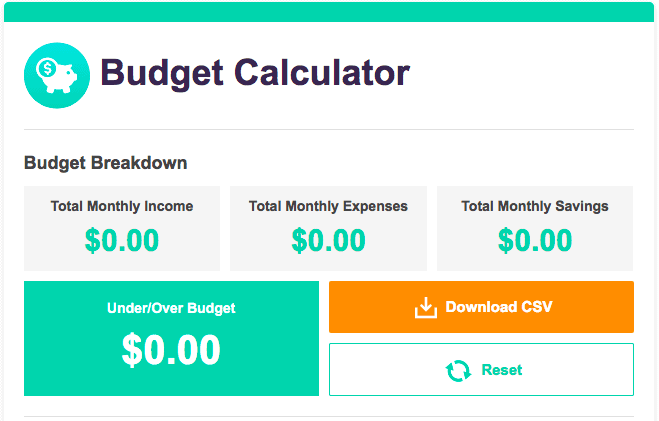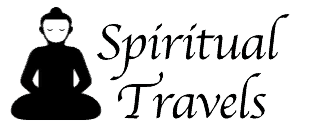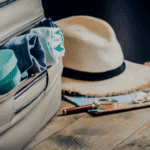Dear reader: This article contains links to products and services that I may be compensated for, at no extra cost to you.
When it comes to travel, I am a serious planner. While I understanding spontaneous travelers, I am certainly not one of them. In fact, I am often guilty of overplanning. But for me, planning and looking forward to an upcoming trip is half the fun!
Below I’m going to introduce the main resources I always use for planning and actually booking all my trips. And as a travel addict for more than 20 years and full-time travel writer, I go on a lot of trips!
Table of Contents
Lonely Planet Guidebooks: Initial Research

Travel guidebooks may be a dying form, but I still use them for every trip. Often I only need a few chapters from a book, which can be purchased individually for less than $5 on the Lonely Planet website. Still, for me nothing beats having the whole, physical book, which I usually purchase here on Amazon.
Why bother when you can find all the information for free online? Well, I’ve always loved the way LP packs and organizes a huge amount of information into their books. Unlike blogs and other online resources, which are often written by non-experts (or people who haven’t even been to that place!), LP authors are trusted experts.
After I decide on a country, I’ll skim though the entire LP for it. This ensures I have a solid understanding of what attractions are there, where they are, how long I will need to see them, how much it will cost, best time to go, and so on.
At this point in my planning, I just like to get a general idea of how many days I’ll need for the purpose of booking my flight; I don’t make a detailed daily itinerary until later (we’ll get to that below!)
Budget Calculator: Start Saving for My Trip

Once I’ve figured out roughly when I want to go on a trip, as well as how much money I’ll need to execute it, it’s time to start setting aside the cash I need. I use this free budgeting calculator to manage my monthly expenses. It helps me to realize where I’m spending too much money (you’d be surprised; give it a try!) and figure out which expenses I have decrease to set aside more money for my trips.
Traveling frequently is undeniably expensive, but there are so many ways you can cut down on spending, not to mention ways to travel cheaper. But I’ll save that for a different article altogether!
Kiwi.com: Finding Flight Deals
There are countless flight booking websites out there, and many of them use dubious strategies to make more money from you. For example, they advertise super low prices, but the prices suddenly go up when you get to the check out screen. Or they pressure you into thinking a flight is almost sold out so you have to buy seats RIGHT NOW.
To be honest, this is why I actually DON’T recommend using any online third party to book your flights, Kiwi included. When COVID devastated the travel industry, thousands of travelers lost flights and never got their money back from many of these companies.
What I do recommend, however, is using Kiwi.com to find unusually good flight deals or routes (AKA “travel hacking”), then actually booking them with the airline. Booking direct is almost always a better idea when it comes to any changes or refunds, and they are usually easier to contact.
Kiwi has some really cool features to do this. First, when you search for a specific flight, you can add a radius to your destination, so it will suggest possible cheaper alternative routes to nearby cities. Second, if you aren’t even sure where you want to go, just type “anywhere” as your destination and it will show you some low-priced possibilities!
Skyscanner and Google Flights are two others that I also usually try for the sake of comparison.
Booking.com and Agoda: Booking Hotels
Booking.comWhen it comes to booking accommodations for my trip, my two favorite resources are Booking and Agoda.
In terms of user interface, I like Booking the best. I find it the most user-friendly. I love the map feature that lets you set various filters and compare prices right on the map. I also love the genius discount which gives you free breakfasts and/or discounts after so many stays in a year. Making bookings on Booking is very straightforward, and cancelation policies are always very clear; you can often cancel a booking for free up to a certain date.
Here’s my referral link for Booking.com. The prices will be the same for you, but I’d get a tiny commission if you booked anything.
I don’t like Agoda’s interface as much, but what Agoda does offer is more selection and often slightly cheaper prices for accommodations in Asia specifically. And because my website is mostly about Asia, I find myself using and recommending Agoda more often for h0tels in Asia.
Here’s my referral link for Agoda.
Another plus of these booking websites is the hotel reviews, which can only be written by people who ACTUALLY stayed in them (unlike TripAdvisor).
Why I No Longer Use or Recommend Airbnb
I used to use Airbnb quite a bit, but I am no longer willing to support them. Traveling with young kids, especially in Europe, I must admit that we found lots of great Airbnb apartments with kitchens.
However, Airbnb has a long list of ethical breaches, including (but not limited to) driving up property prices for locals, forcing locals out of their own neighborhoods, and operating illegally in certain cities and countries.
From a blogger’s perspective, you may have seen lots of us recommending them with a “free voucher for your first stay” so that we could get the signup bonus on our end too; well, they silently cut that program out in 2021, as well as their short lived affiliate program, so that was the final nail in the coffin for us ever using or recommending Airbnb again.
As an ethical alternative to Airbnb, try using Fairbnb.coop, traditional B&Bs on Booking.com or Agoda, or whenever possible, just book directly with the hotel.
Travel Blogs: Detailed Itinerary Planning
Once I’ve booked my flights and hotels, it’s time to get down to the more serious, day-to-day itinerary planning. This is when I turn to my fellow travel bloggers for ideas and start making a schedule of what I want to see and do every day.
Unlike travel guidebooks, travel bloggers can be hit or miss. The information can be more recent than guidebooks, but it can also be outdated and unreliable. They can be more honest, but they can also be fake.
I guess more caution is needed here. But definitely travel blogs often serve to fill in the gaps of places that may have been missed in guidebooks, newer hot spots, or they paint a more honest realistic picture of attractions rather than just trying to make all of them sound amazing.
GoogleMaps: More Planning and Discovering New Local Spots
More and more in recent years I find myself doing a huge amount of travel research and planning using GoogleMaps. From reviews of attractions/hotels/restaurants and route planning to finding the exact location of trailhead or whether a neighborhood looks desireable to stay in.
Often before (or after) I book a hotel, I’ll just zoom in and scan the neighborhood for cool local spots or restaurants. Sometimes these up-and-coming places aren’t mentioned in travel guidebooks or blogs, or haven’t made their way up the rankings in TripAdvisor yet.
As a travel blogger who loves to publish extremely detailed guides, I also use this method for finding awesome things to do in destinations that haven’t been covered by other bloggers yet.
TripAdvisor: Filtering out Overrated Spots
To get a balanced perspective, I always also read reviews of attractions and restaurants on TripAdvisor (for hotels, I tend to stick to the booking sites, where only people who actually stayed there can leave a review).
On TripAdvisor, people tell it like it really is. No one is trying to inspire readers or upsell a destination. If you want to find out the possible downsides of a famous attraction, here you are.
Having said that, people are more like to write a review when they had an extreme experience (either extremely good, or more often, extremely bad). Therefore, you always have to take reviews with a grain of salt and read between the lines.
Also do consider that a lot of TripAdvisor reviews are fake. I tend to scan for reviewers that have many past reviews, write many details, and share both the good and bad.
Cookly: Finding Cooking Classes
Cooking classes a great way to experience local culture and bring some useful knowledge back from your trip. I recommend using Cookly to find cooking courses in whichever city or region your are visiting. There are probably more options than you’d imagine!
Klook: Finding Travel Deals in Asia
Klook.comIf you are heading to Asia, I would strongly recommend using Klook. You can find all kinds of awesome discounts and deals on things that you are probably going to be buying anyway on your trip, such as train tickets, restaurant vouchers, attraction entrance fees, and more. Sometimes you can save you up to 50%!
If you sign up for Klook with my referral code, you’ll get a discount on your first booking.
GetYourGuide: Travel Savings in Europe and Beyond
My final recommended travel resource is Get Your Guide, especially if you are planning a trip to Europe. Like Klook, they have discounts on all kinds of travel services and entrance fees, but they are especially good for small group tours.
We used Get Your Guide to book several small tours and activities on our trip across Europe with our kids, and we were never disappointed!
Here’s my GetYourGuide referral link.
Well, that brings us to the end of my recommended travel resources. I know there are many more out there, but these are the ones I always use. What am I missing? Which ones do you always use? Let me know in the comments below!




Thank you for the info about Fairbnb.coop — I had never heard of them previously but it’s brilliant.